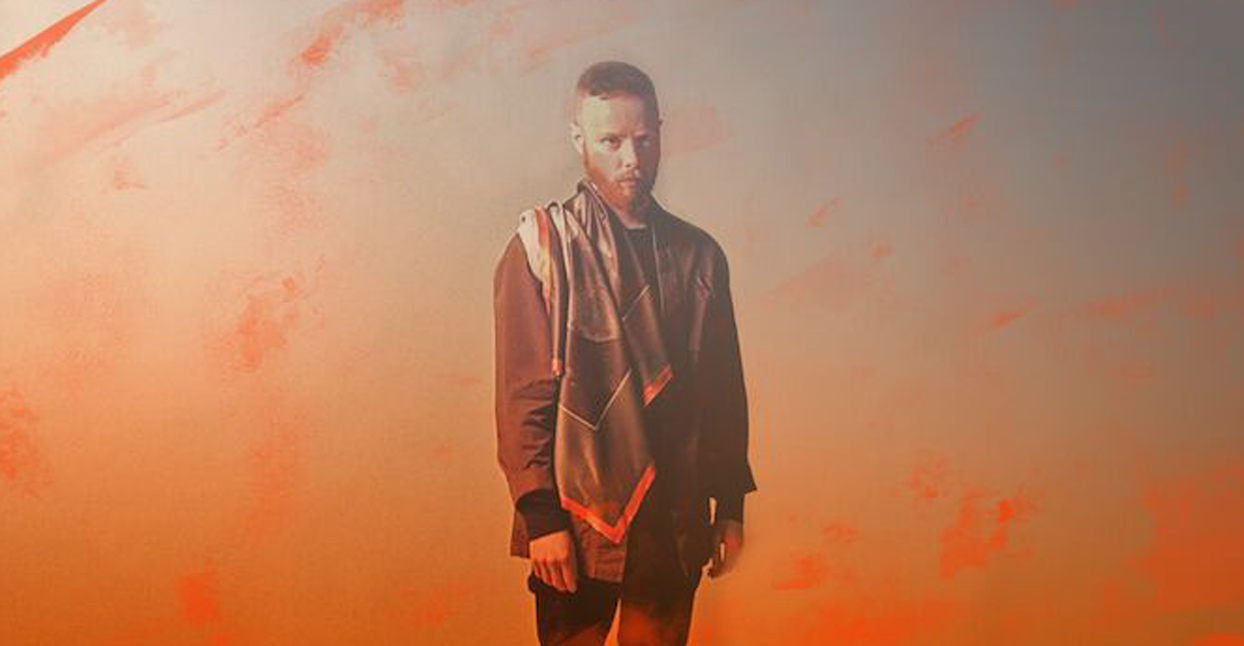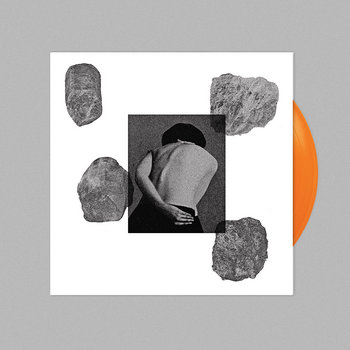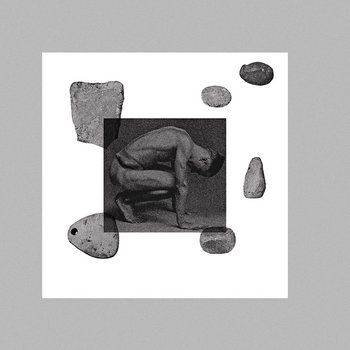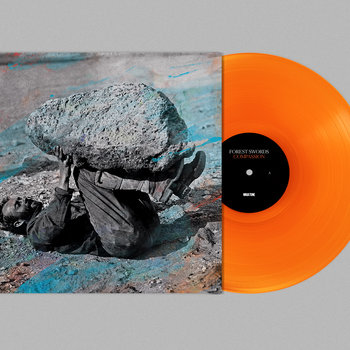

For his new album, UK-based producer Forest Swords spins dark instrumental elements into something hopeful. It ties directly to the world in which we live, where every day presents a new level of political and social despair. The album title, Compassion, is an attempt to throw a hopeful word into the dark abyss. Musically, the producer’s new album sounds like his previous work—stark, urgent, rhythmical—with more accessible components. For instance, “The Highest Flood” is an ominous dance track with a chopped vocal sample that might sound familiar to fans of Engravings, his 2013 album. Other songs blend jazz and glitch without losing the album’s bleak sonic core. Compassion feels timeless in that way, though given its artistic outlook, it’s clearly something we need right now.
We spoke to Forest Swords about the new LP, the struggle to find hope in bad times, and the unconventional way he went about promoting this record.








Vinyl LP, Compact Disc (CD)




Your new album is called Compassion. What significance does the title hold for you?
On one hand, it was a title that seemed to fit the sound of the record, which is how I generally title all the projects I do. Sometimes words just sit really well with sounds and textures. On the other hand, I’d noticed how words spread faster and faster over the past 18 months: phrases zoom around at light-speed with social media. I liked the idea that ‘compassion’ might be part of that exchange, however tiny a bubble I work in. It’s just about putting it out into the world: reminding myself of it, and hopefully it might chime with other people. Using an album title as a seed like that really intrigued me. Working on the record, I came into contact with a lot of different people, and reminded myself that it’s much more rewarding to be open and welcoming than pulling the shutters down and being insular.
Would you say this music is reactionary to what’s happening in the world today?
It’s more of an echo maybe—it wasn’t a direct response, but parts of it touch on the way I was trying to navigate through everything that was going on. I try and make everything I do timeless—in the sense that it’s quite difficult to place when it was made—so I’m never really keen to tie it to anything specific going on. Everything is so fast-moving anyway, and I’m also not articulate enough to talk about those things in depth. A lot of people I knew were struggling on some level or another, and it was dove-tailing with larger issues going on in the world. It’s difficult to not have it seep into what you’re making, I guess.
I was conscious though, that you need to slice through the gray and find daylight somewhere. It’s good to be conscious of what’s going on, but it can really grind you down and make you assume everything’s horrible and useless. It’s really important to peek out of the darkness if you can, and those moments are a lot more pronounced on this album I think.
This time, the track titles are quite direct, evocative, and slightly dark and violent. They seem extremely relevant, whether it’s ‘The Highest Flood,’ ‘Sjurvival,’ or ‘Panic.’ Does each speak to a specific moment or event?
I kept a lot of the working titles like ‘Sjurvival’—they’re used mainly as signposts of the space I was in when the tracks were first started, than about any specific moment. There was certainly this blanket of dread that hung over the UK in particular over the past year, with Brexit and everything else. But if you dig into these tracks, they move into moments of hope and color. In all of them, there’s parts that unfurl and welcome you in, even if you need to hunt around.
I finished ‘The Highest Flood’ a few days after I faced one of my fears head-on: I’d had a stupid phobia about open water and swimming since I was a kid, and decided one day to go and jump in a pool. The working title ended up being pretty appropriate so I kept it. You can hear that kind of pull between claustrophobia and joy in that track in particular, but it runs right through the record—they crash head on with each other. ‘Panic’ has a kind of tension to it as well, but it boils over into something euphoric. I hope people can pick up on that kind of feeling if they spend time with the album.






Vinyl LP, Compact Disc (CD)




The colors and atmospheres on Compassion are also quite dark and urgent. There is a lot of distortion and tension. Was it taxing to make a record like this?
It wasn’t as exhausting as Engravings because I changed where I wrote and recorded regularly. It meant I could approach things with a fresh ear every month or so. I had a bunch of songs that all seemed to fit together, and over time they felt like they were really pushing themselves towards the light, mutating upwards, or breaking apart.
Even though bits of it are distorted and bent out of shape, I don’t think it’s a dark album necessarily, and parts of it are probably the most accessible I’ve done. But I think they rub up with some pretty challenging sounds as well—I like that tension. There’s definitely urgency to it, but I think it always spills into it being ecstatic and hopeful. Melancholy and ecstasy can play off each other in really interesting ways, and it’s something I love exploring when I’m trying to make tracks. Sometimes just shifting a note or a beat in a different direction can change the entire feeling a song. That sort of thing is very trial and error.
Musically, Compassion sometimes borders with cinematic music and makes use of many organic textures. Almost everything feels real—I mean recorded with a person in your studio—and not just sampled. What’s the intention behind this creative choice?
Some of it is not as real as it might sound. Virtual instruments and plugins have got so sophisticated that you can pretty much pretend to be anything to some degree. But there’s always something slightly wonky about it, which I love—something that you can’t put your finger on. So yeah, I’ve always been attracted to more organic textures and I’ve made all of my music ‘in the box’ on my laptop, even if I record external instruments. Pushing these two things together to extremes, and playing around with expectations of what’s digital or not, can be fun. Some of the specially recorded bits on the record are so heavily processed and messed around with that it gives up its original form. Or I’ll sample a real instrument and replay it, so I can make my own melodies from it. Does that then mean it’s less valid than hiring a pro musician to play it? I don’t really think so, and I’m not really in the position to be able to do that anyway. It’s just ways to get sounds—everything’s fair game.
Scoring the contemporary dance score, Shrine, must have been quite a challenge, too. What learnings from that process had an influence on Compassion?
There’s probably a looseness to the record that I don’t think I’d have had the chance to do were it not for doing Shrine and In The Robot Skies, a film score I did recently. With something like dance, you can really play around with space in the music—I talked to dancers and choreographers who said they find it frustrating when the music is too busy. That filtered down into a lot of Compassion. Bits of it break up and disintegrate and some have slightly odd structures. There’s parts where I just kind of let the song lead itself in its own direction—something I’d love to explore more in future. It’s very liberating, but it wasn’t something I tried before scoring. I’d been listening to a lot of pretty wild jazz too, and that kind of freeform approach to writing, just letting things run and seeing where it ends up seems more and more appealing.
I also just really enjoyed meeting people and collaborating on something slightly out of my comfort zone. I had no experience in dance or film, but I realized that you can really learn a lot from throwing yourself in the deep end. Getting different perspectives and seeing how others work, I found that really fun. That was one of the themes while I was making the record really, just reminding myself that connecting with other people in different realms can be inspiring and helpful.






Vinyl LP, Compact Disc (CD)




Was it important for you to try and do something different after Engravings?
I made a point of trying out different environments, just to see how it soaked in to the process, if at all. I went back to a lot of places I’d really enjoyed on tour and tried recording there with no expectations. A few weren’t too far, like the Scottish Highlands, and a few were more far flung, like Istanbul. Sometimes I came away with a couple of tracks or loops, sometimes it was just a beat, sometimes nothing. I’m not sure I’ll ever do big 180-degree turns every record, but I do think it’s important to feel like you’re shifting yourself gradually every single time. The songs always go through lots of different iterations—naturally over the course of 18 months the choices you make about what you want to listen to change. Engravings felt very intimate, and perhaps was quite difficult to dig into because it was about a specific place. This one feels a lot more expressive and forward-facing to me because it was done in different places and spaces.
Over the course of the next year or so, Compassion will be accompanied by a set of projects across different mediums, all curated by Dense Truth, a new studio and record label you established. Could you tell me a bit more about what you’re planning and why you started this project?
I’d done the score and art directed for Shrine, and realized I was probably going to have to release it myself. Labels were a bit hesitant about it because it was a bit of a tough listen—I mean, half of it’s made out of breathing sounds, which is obviously ridiculous. I’d also been getting to work with so many great people on projects and meeting artists at shows. I was thinking, ‘Well why not try and make all these things fit together somehow?’
So Dense Truth is partly record label, and partly creative studio. It means I have an outlet to release more of the scoring stuff I might do, but also bring in really talented people to work on different projects with me, or just bring them together and let loose on their own. I’ve just co-directed a couple of the videos for Compassion, for instance, with a bunch of amazing people. It’s going to be an outlet for things I think are exciting and make sense: dance, video, publications, whatever really. Having that kind of umbrella to play around with seems like it fits with the way I’m thinking more. Branching out into other areas and learning new things excites me a lot.
You’ve also been trying to promote the record in an innovative way—via direct WhatsApp messages with fans. As someone who received a track directly from you, I can say it was refreshing. I think it definitely created a different connection. How was the experience for you?
Unexpectedly really amazing. I got a lot more messages and requests than I expected and it took a full day to reply to them all. I sent out about 30 unreleased tracks to different people. A lot have continued to keep in touch, dropping me a line saying they’ve bought tickets to the tour or whatever. A few messaged about ways in which they listen to the music or ways they feel about it, which was lovely. A lot actually sent me their own music in return, so it felt like an exchange. I’ve just done a follow-up using Skype, where I screened a different edit of the “Panic” video to a bunch of people one-on-one. That was fun.
I was just a bit frustrated with these existing channels we’ve got; it’s difficult to get work in front of people sometimes, a complete lottery. Some people will see it and engage with it, but most won’t. It’s also deeply impersonal. Even Twitter feels like you’re yelling over a wall at a stranger. I feel a real disconnect with it, which is why I’m pretty quiet on social media. It’s not like hanging out at the merch stand after a show where you get to chat to the artist.
I don’t know anyone, particularly in Europe, that doesn’t use Whatsapp to message their friends. So instantly it created this very immediate connection, and actually people were more intimate and open than I expected them to be. I was thinking about connections, language, and communication while I was making the record, and ways we could be using these existing tools like Whatsapp and Skype in different ways. I thought I’d try that as part of this album lead-up. It was a little experiment, but I’m glad I had a go.
—Adam Badi Donoval







